#App Business
Explore tagged Tumblr posts
Text
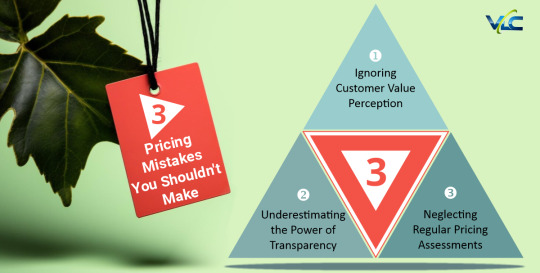
Navigating the realm of app and extension businesses resembles traversing a tightrope, with your pricing strategy serving as the crucial safety net below. A well-executed pricing approach ensures a seamless journey, while errors in this aspect can result in a perilous descent. This blog delves into three pricing mistakes that businesses in this domain must steer clear of at all costs.
1 note
·
View note
Text
How lock-in hurts design

Berliners: Otherland has added a second date (Jan 28) for my book-talk after the first one sold out - book now!

If you've ever read about design, you've probably encountered the idea of "paving the desire path." A "desire path" is an erosion path created by people departing from the official walkway and taking their own route. The story goes that smart campus planners don't fight the desire paths laid down by students; they pave them, formalizing the route that their constituents have voted for with their feet.
Desire paths aren't always great (Wikipedia notes that "desire paths sometimes cut through sensitive habitats and exclusion zones, threatening wildlife and park security"), but in the context of design, a desire path is a way that users communicate with designers, creating a feedback loop between those two groups. The designers make a product, the users use it in ways that surprise the designer, and the designer integrates all that into a new revision of the product.
This method is widely heralded as a means of "co-innovating" between users and companies. Designers who practice the method are lauded for their humility, their willingness to learn from their users. Tech history is strewn with examples of successful paved desire-paths.
Take John Deere. While today the company is notorious for its war on its customers (via its opposition to right to repair), Deere was once a leader in co-innovation, dispatching roving field engineers to visit farms and learn how farmers had modified their tractors. The best of these modifications would then be worked into the next round of tractor designs, in a virtuous cycle:
https://securityledger.com/2019/03/opinion-my-grandfathers-john-deere-would-support-our-right-to-repair/
But this pattern is even more pronounced in the digital world, because it's much easier to update a digital service than it is to update all the tractors in the field, especially if that service is cloud-based, meaning you can modify the back-end everyone is instantly updated. The most celebrated example of this co-creation is Twitter, whose users created a host of its core features.
Retweets, for example, were a user creation. Users who saw something they liked on the service would type "RT" and paste the text and the link into a new tweet composition window. Same for quote-tweets: users copied the URL for a tweet and pasted it in below their own commentary. Twitter designers observed this user innovation and formalized it, turning it into part of Twitter's core feature-set.
Companies are obsessed with discovering digital desire paths. They pay fortunes for analytics software to produce maps of how their users interact with their services, run focus groups, even embed sneaky screen-recording software into their web-pages:
https://www.wired.com/story/the-dark-side-of-replay-sessions-that-record-your-every-move-online/
This relentless surveillance of users is pursued in the name of making things better for them: let us spy on you and we'll figure out where your pain-points and friction are coming from, and remove those. We all win!
But this impulse is a world apart from the humility and respect implied by co-innovation. The constant, nonconsensual observation of users has more to do with controlling users than learning from them.
That is, after all, the ethos of modern technology: the more control a company can exert over its users ,the more value it can transfer from those users to its shareholders. That's the key to enshittification, the ubiquitous platform decay that has degraded virtually all the technology we use, making it worse every day:
https://pluralistic.net/2023/02/19/twiddler/
When you are seeking to control users, the desire paths they create are all too frequently a means to wrestling control back from you. Take advertising: every time a service makes its ads more obnoxious and invasive, it creates an incentive for its users to search for "how do I install an ad-blocker":
https://www.eff.org/deeplinks/2019/07/adblocking-how-about-nah
More than half of all web-users have installed ad-blockers. It's the largest consumer boycott in human history:
https://doc.searls.com/2023/11/11/how-is-the-worlds-biggest-boycott-doing/
But zero app users have installed ad-blockers, because reverse-engineering an app requires that you bypass its encryption, triggering liability under Section 1201 of the Digital Millennium Copyright Act. This law provides for a $500,000 fine and a 5-year prison sentence for "circumvention" of access controls:
https://pluralistic.net/2024/01/12/youre-holding-it-wrong/#if-dishwashers-were-iphones
Beyond that, modifying an app creates liability under copyright, trademark, patent, trade secrets, noncompete, nondisclosure and so on. It's what Jay Freeman calls "felony contempt of business model":
https://locusmag.com/2020/09/cory-doctorow-ip/
This is why services are so horny to drive you to install their app rather using their websites: they are trying to get you to do something that, given your druthers, you would prefer not to do. They want to force you to exit through the gift shop, you want to carve a desire path straight to the parking lot. Apps let them mobilize the law to literally criminalize those desire paths.
An app is just a web-page wrapped in enough IP to make it a felony to block ads in it (or do anything else that wrestles value back from a company). Apps are web-pages where everything not forbidden is mandatory.
Seen in this light, an app is a way to wage war on desire paths, to abandon the cooperative model for co-innovation in favor of the adversarial model of user control and extraction.
Corporate apologists like to claim that the proliferation of apps proves that users like them. Neoliberal economists love the idea that business as usual represents a "revealed preference." This is an intellectually unserious tautology: "you do this, so you must like it":
https://boingboing.net/2024/01/22/hp-ceo-says-customers-are-a-bad-investment-unless-they-can-be-made-to-buy-companys-drm-ink-cartridges.html
Calling an action where no alternatives are permissible a "preference" or a "choice" is a cheap trick – especially when considered against the "preferences" that reveal themselves when a real choice is possible. Take commercial surveillance: when Apple gave Ios users a choice about being spied on – a one-click opt of of app-based surveillance – 96% of users choice no spying:
https://arstechnica.com/gadgets/2021/05/96-of-us-users-opt-out-of-app-tracking-in-ios-14-5-analytics-find/
But then Apple started spying on those very same users that had opted out of spying by Facebook and other Apple competitors:
https://pluralistic.net/2022/11/14/luxury-surveillance/#liar-liar
Neoclassical economists aren't just obsessed with revealed preferences – they also love to bandy about the idea of "moral hazard": economic arrangements that tempt people to be dishonest. This is typically applied to the public ("consumers" in the contemptuous parlance of econospeak). But apps are pure moral hazard – for corporations. The ability to prohibit desire paths – and literally imprison rivals who help your users thwart those prohibitions – is too tempting for companies to resist.
The fact that the majority of web users block ads reveals a strong preference for not being spied on ("users just want relevant ads" is such an obvious lie that doesn't merit any serious discussion):
https://www.iccl.ie/news/82-of-the-irish-public-wants-big-techs-toxic-algorithms-switched-off/
Giant companies attained their scale by learning from their users, not by thwarting them. The person using technology always knows something about what they need to do and how they want to do it that the designers can never anticipate. This is especially true of people who are unlike those designers – people who live on the other side of the world, or the other side of the economic divide, or whose bodies don't work the way that the designers' bodies do:
https://pluralistic.net/2022/10/20/benevolent-dictators/#felony-contempt-of-business-model
Apps – and other technologies that are locked down so their users can be locked in – are the height of technological arrogance. They embody a belief that users are to be told, not heard. If a user wants to do something that the designer didn't anticipate, that's the user's fault:
https://www.wired.com/2010/06/iphone-4-holding-it-wrong/
Corporate enthusiasm for prohibiting you from reconfiguring the tools you use to suit your needs is a declaration of the end of history. "Sure," John Deere execs say, "we once learned from farmers by observing how they modified their tractors. But today's farmers are so much stupider and we are so much smarter that we have nothing to learn from them anymore."
Spying on your users to control them is a poor substitute asking your users their permission to learn from them. Without technological self-determination, preferences can't be revealed. Without the right to seize the means of computation, the desire paths never emerge, leaving designers in the dark about what users really want.
Our policymakers swear loyalty to "innovation" but when corporations ask for the right to decide who can innovate and how, they fall all over themselves to create laws that let companies punish users for the crime of contempt of business-model.
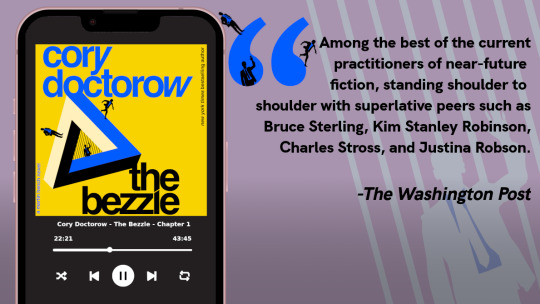
I'm Kickstarting the audiobook for The Bezzle, the sequel to Red Team Blues, narrated by @wilwheaton! You can pre-order the audiobook and ebook, DRM free, as well as the hardcover, signed or unsigned. There's also bundles with Red Team Blues in ebook, audio or paperback.

If you'd like an essay-formatted version of this post to read or share, here's a link to it on pluralistic.net, my surveillance-free, ad-free, tracker-free blog:
https://pluralistic.net/2024/01/24/everything-not-mandatory/#is-prohibited

Image: Belem (modified) https://commons.wikimedia.org/wiki/File:Desire_path_%2819811581366%29.jpg
CC BY 2.0 https://creativecommons.org/licenses/by/2.0/deed.en
#pluralistic#desire paths#design#drm#everything not mandatory is prohibited#apps#ip#innovation#user innovation#technological self-determination#john deere#twitter#felony contempt of business model
3K notes
·
View notes
Text
How Can Mobile App Development Trends 2023 Improve Your Business?
With the increasing importance of mobile apps for both individuals and organizations, they have become an indispensable part of almost everyone’s daily lives. However, as mobile technology advances rapidly, the available technology and tools to create innovative apps are also expanding. Also, a report from Statista found that the mobile app market’s total revenue is expected to reach US$755.50bn by 2027. By looking at the above stats, it’s clear that entrepreneurs need to be up-to-date with current mobile app development trends to stay profitable in this ever-changing digital ecosystem.
0 notes
Text
instagram
Paulina Bryan’s vision for the Live Lawyer App @livelawyerapp stemmed from her son’s frequent police stops after buying a new car. He would call her, anxious and unsure how to handle the situation, sparking her idea to create an app that connects users with lawyers via video chat during police encounters. Paulina, in a moment of frustration and creativity, mused that it would be ideal if one could Skype a lawyer in such situations. This idea sparked the beginning of a journey that would take several years and immense dedication. In 2014, Paulina began the patent process for the Live Lawyer App. However, the path was not easy. Tragically, in 2016, her son was murdered, a devastating loss that strengthened her resolve to bring her vision to life. Paulina channels her grief and determination into developing an app that aims to provide immediate legal representation for individuals stopped by the police. The Live Lawyer App operates on a simple yet powerful principle: if stopped by the police, users can activate the app to connect with a lawyer via a FaceTime-like feature. This immediate legal support can help navigate the complexities and anxieties of police encounters, ensuring that users’ rights are protected. The app also alerts pre-selected contacts of the user’s location, adding an extra layer of safety.
www.livelawyerapp.com
#blacklivesmatter#black lives matter#police state#police brutality#app#black owned business#black experience#black excellence#apps#Instagram
611 notes
·
View notes
Text
I feel like people don't often fully appreciate how hard dating can be for demisexuals.
It just hit me the other day when I found out that most people are kissing by the first date and having sex by the third and to me that is just wild. And apparently, some people wait up to three months before having sex and that's seen as like a really long time and I'm sorry but is everyone okay???
After three dates a person is still a stranger and after three months they're at most an acquaintance - and people are not willing to wait longer and you'll be seen as unreasonable if you want to wait for a year or more??
#I'm asexual and am not in the business of wanting sex with anyone#but sometimes I find myself wondering if I could and in what situation#and I'm like hm maybe if I knew someone for like 5 years and loved them a lot as a friend and trusted them maybe I could compromise#and then I found out about expectations in dating culture and my mind was blown#it makes me realise how asexual I am lol#but I feel like most people are using dating apps now and it's pretty hard to have a really slow getting to know someone#so my heart goes out to demisexual people because I think a lot of people see them as not having many obstacles#demisexual#asexual spectrum#asexual community#ace spectrum#acespec#asexuality#asexual
539 notes
·
View notes
Text

🌿 DAY 9
Notes app Snufkin because I am busy help
#moomins#moominvalley#snufkin#the moomins#brought to you by my notes app#no i am not in divorce with csp i just need to doodle something real quick today because i am busy#and i wish i wasnt because i just want to nap#i have been awake for a day help finals are killing me#WHY must there be group assignments too.#well i guess it's good this one is a group assignment because that means i can get others to do the talking#okay but the pencil brush on the notes app is so good????? i might use it more often than just for emergency daily doodles
186 notes
·
View notes
Text
#tumblr polls#personal#pls rb once you vote!!#i wanna know which one wins so i can better tweak my gifs for that platform :)#mobile users: please drop what phone model you use in the tags#bc how are u able to use tumblr on mobile when the app is laggy as hell#it takes me three business days to reblog one gifset
1K notes
·
View notes
Text
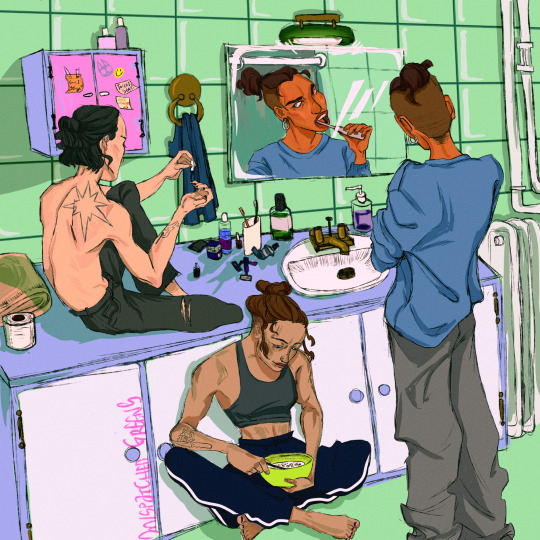
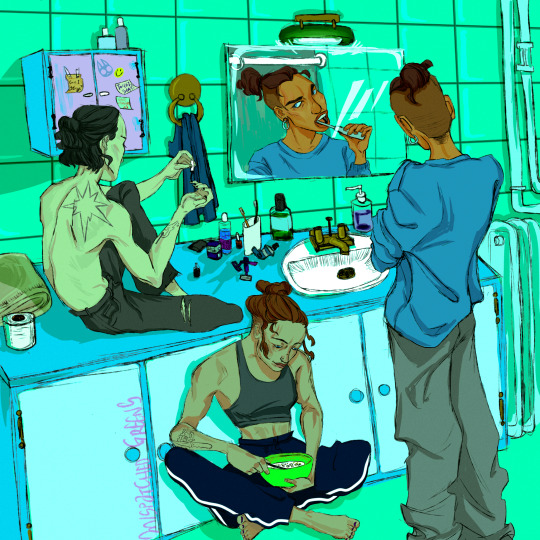
communal spaces! are the heart of any throuple! (2 versions bc im just an indecisive baby)
it's @zukki-week and day 1 was domestic
#zukki week 2023#zukki#zukki fanart#atla#zuko#sokka#suki#my art#I'm two days late or sth but listen#i was busy being hangover and then having heartburn and then mourning the file that sai ate while crashing#and then in a fugue state i opened my notes app and starting typing up a zukki fic draft#we're idk what we're doing lads we're taking down the system one throuple at a time#ALSO YEAH suki should be a total beast okay i wanna look at her and pray for a beating#drawing teeth brushing is surprisingly difficult
945 notes
·
View notes
Text
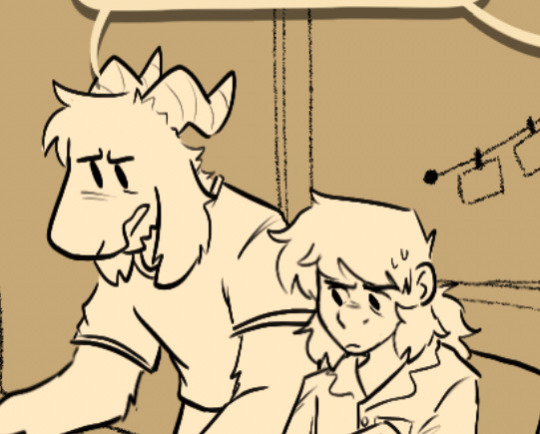
#sneak peek#whew this next update is taking me longer than I thought I was going to#I have a two hour time limit for my drawing app. And I don’t always draw every day. So it can be a slow process.#and I also don’t really have future pages like- up and ready to make so it’s idnfdfvdvddv it just takes me a while#I wish I had a better upload schedule rather than just like once a month. But it just kind of be like that. :(#I’m a busy college kid. I’m truly surprised. I’m even still doing this comic. I’m glad I am.
411 notes
·
View notes
Text
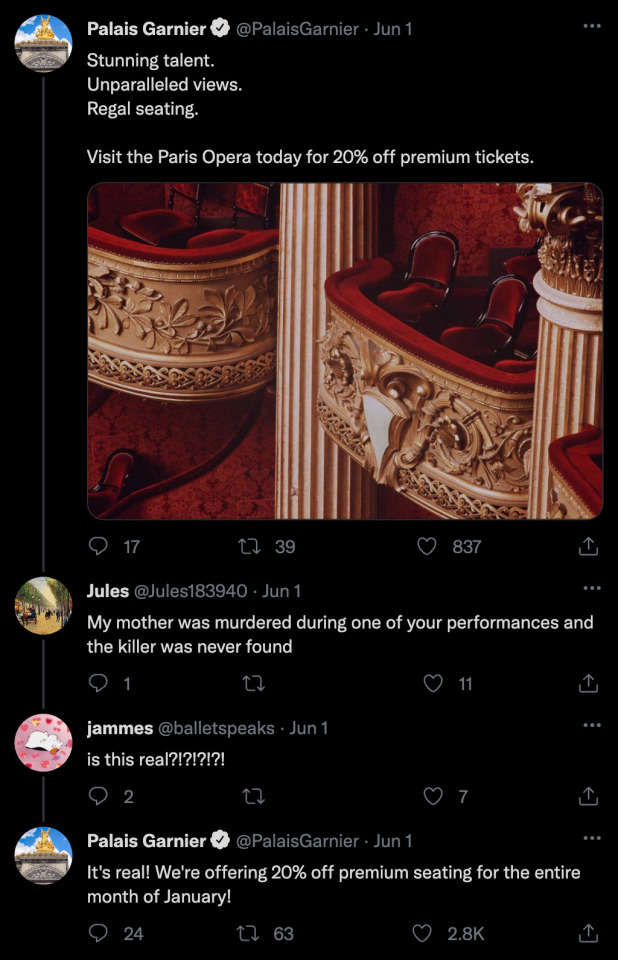
phantom of the opera + twitter / (insp)
#the official opera house twitter account gives approximately zero fucks#people keep replying to their normal business/promotional tweets like “are you going to do anything about the phantom”#and they just keep tweeting like :)#finally they put out an announcement (a notes app screenshot) saying that the phantom isn't real BUT they will be offering ghost tours soon#phantom of the opera#poto#poto shitpost#poto twit
608 notes
·
View notes
Note
Put Bonnie in In Stars and Time!
…no wait they’re already there normally. Uh, well… put them in there again! (x2 kid)
Bonnie has multiplied!

#where is bonnie?#bonnie in a location#in stars and time#isat#isat bonnie#ask#sorry about being late today#I’ve been very busy and forgot to make this last night#everyone wish me luck with college apps
121 notes
·
View notes
Text
The Phantom Thieves' scrapped plans for outwitting Akechi on 11/20
Joker convinces Sae that guns aren’t real so the bullet will just bounce off of Joker’s forehead
Convince Sae that Akechi has an evil(er) fraternal twin who was raised to become a cage fighter so the bigger Akechi will simply eat the smaller one for enrichment
Futaba releases a Goro Akechi gacha game and does a Phantom Thief collab as a fail-safe, so Akechi’s life will be guaranteed to end service less than one year from now
Put Joker’s smartphone up his ass because the cops are too homophobic to perform a cavity search (make sure vibrate is off)
#p5#persona 5#persona 5 spoilers#p5 spoilers#akira kurusu#ren amamiya#goro akechi#hi everyone I've been afk bc I deleted my socmed apps#I recently reinstalled two just to share my Joker ita bag stuff for the collab#but yeah hi how are you all! been busy and drained but that's life#miss you all very much#have my stupid memes#my stuff
128 notes
·
View notes
Text
Back with some cult of the lamb art!

#Sorry I haven't been that active lately#That's set to change#I've just been super busy with stuff#And I've become obsessed with cult of the lamb#art#artists on tumblr#artwork#character art#my art#fan art#cult of the lamb#cult of the goat#cult of the lamb art#cult of the lamb fandom#cult of the lamb follower#cult of the lamb fanart#cotl lamb#cotl narinder#cotl art#cotl au#cotl fanart#cotl fandom#Colt design#traditional art#artistsoninstagram#procreate drawing#procreate app#procreate#procreate art#digital artist
124 notes
·
View notes
Text
could you imagine silver in the past bringing up stuff about shadow that no one else knows n even shadow’s confused as to how he knows that n silver’s just like “oh you haven’t told anybody that yet?”
then silver goes back to the future to his dad and is like “why the fuck does nobody know your favourite food”
#i’m too busy with College™️ to work on art or that one fic so all i have are these dumb thoughts i wrote in the notes app#had this one chillin’ since august for some reason#also if it wasn’t clear this is about#dadow#silver the hedgehog#shadow the hedgehog
440 notes
·
View notes
Text

Help I can't stop drawing art the clown!!
#art the clown#terrifier#david howard thornton#wip#art wip#sketch#im gonna finish this in about 7 to 10 business days#or sooner we'll see#depents on my mood#medibang paint#yall should use this app its so good
89 notes
·
View notes
Text



oh well it's probably fine
#i wanna put the first one in something bigger but it'll take a while until i figure it out😭#aph russia#hetalia#hetalia gangsta#gangstalia#ivan braginsky#this is wrapped in multiple hc layers. anyway yada yada childhood dreams the mechanic business (mentioned in gangstalia) is a front lolll#general winter isss his predecessor in the position of district representative ? he's semi aware of this. tee hee.#based on the interview style illustration of him saying he'll probably do what his uncle does and that he#doesn't let himself like too much stuff in particular (according to gay translator app)#myart#sorry i put child rusi in different clothes. i really don't like his canon illustration gayfit sue me#vague academy bs mentioned just because they looked cute and scholarly in that first child drawing of the big 5❤️
118 notes
·
View notes